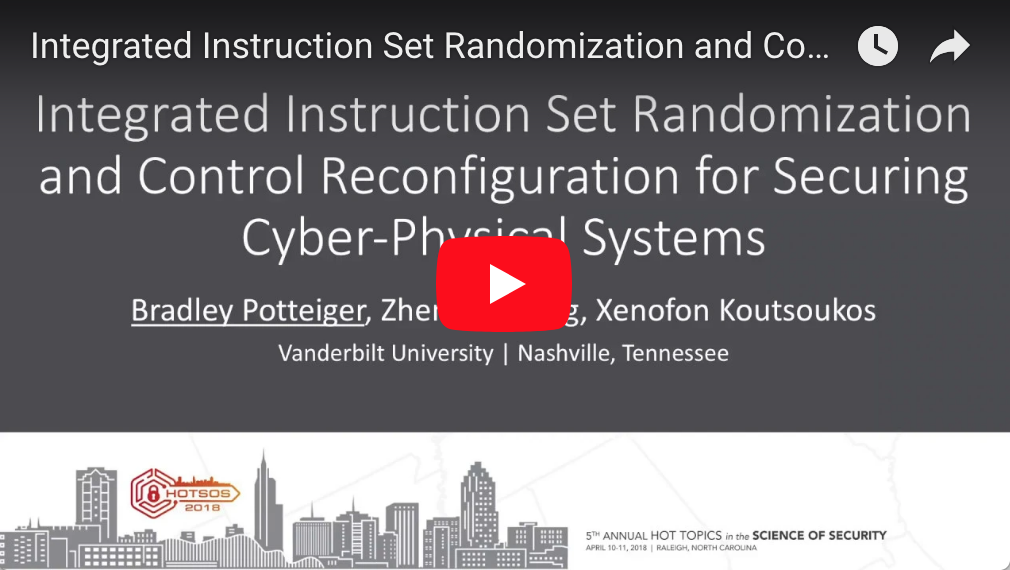Integrated Instruction Set Randomization and Control Reconfiguration for Securing Cyber-Physical Systems
BIO
Bradley Potteiger is a PhD student in the Department of Electrical Engineering at Vanderbilt University with a research affiliation at the Institute of Software Integrated Systems. He received his MS. degree from Vanderbilt University in Electrical Engineering and his BS. degree in Computer Engineering from the University of Maryland, Baltimore County. His research at Vanderbilt is focused on Cyber Physical System (CPS) security with respect to protecting safety critical systems. Through his research he has worked with various research organizations within industry and government. |
 |
|
ABSTRACT Cyber-Physical Systems (CPS) have been increasingly subject to cyber-attacks including code injection attacks. Zero day attacks further exasperate the threat landscape by requiring a shift to defense in depth approaches. With the tightly coupled nature of cyber components with the physical domain, these attacks have the potential to cause significant damage if safety-critical applications such as automobiles are compromised. Moving target defense techniques such as instruction set randomization (ISR) have been commonly proposed to address these types of attacks. However, under current implementations an attack can result in system crashing which is unacceptable in CPS. As such, CPS necessitate proper control reconfiguration mechanisms to prevent a loss of availability in system operation. This paper addresses the problem of maintaining system and security properties of a CPS under attack by integrating ISR, detection, and recovery capabilities that ensure safe, reliable, and predictable system operation. Specifically, we consider the problem of detecting code injection attacks and reconfiguring the controller in real-time. The developed framework is demonstrated with an autonomous vehicle case study. |
|


